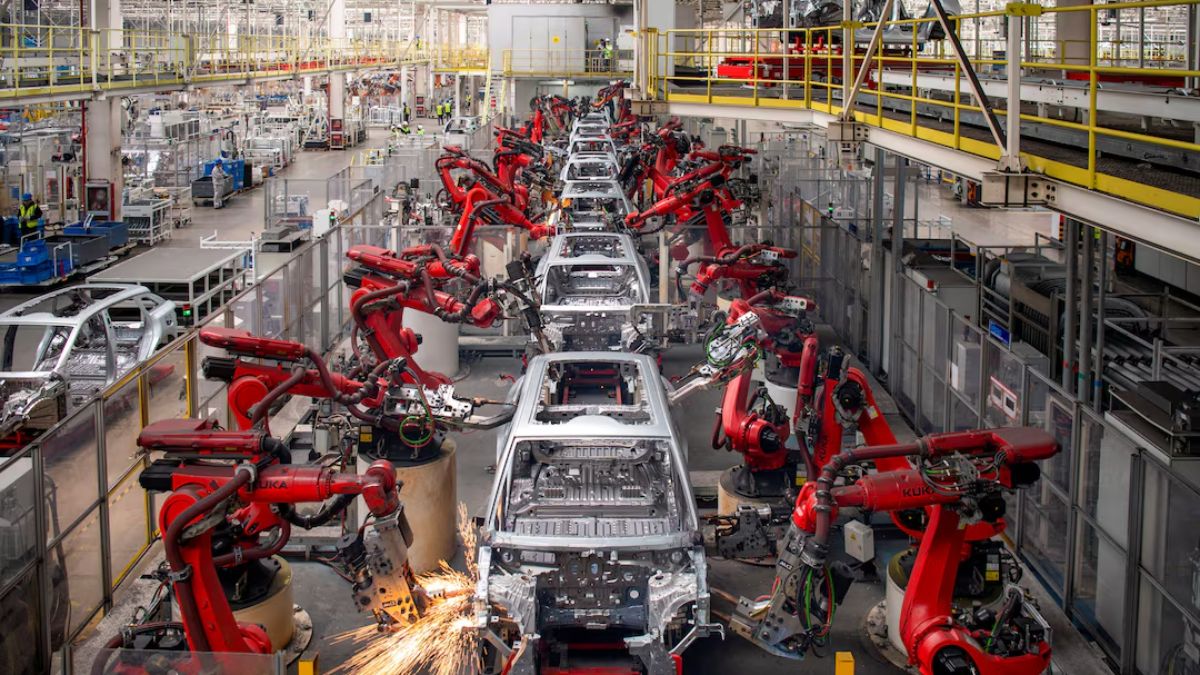Even as Chinese artifical intelligence (AI) startup DeepSeek has rattled the Western technology ecosystem, the Chinese industry remains in the woods as latest data shows declining industrial profitse, shrinking manufacturing, and stimulus proving to be inssufficient to shore up the economy.
It was only on the back of massive stimulus that China reached its economic growth target of 5 per cent in 2024.
DeepSeek, a year-old Chinese startup, has an AI model R1 that does everything that ChatGPT but does it cheaper, according to the company.
In sharp contrast to hundreds of millions and even billions invested into their models by the likes of Google, Open AI, and Meta, DeepSeek said it only spent $5.6 million into developing its AI mode.
AI, tech, and chipmaking companies lost hundreds of billions in value on Monday after this came to light. The tech-heavy index Nasdaq fell by 3.1 per cent and the broader S&P 500 fell 1.5 per cent.
Chipmaker Nvidia, whose chips power advanced AI operations, lost lost nearly $600 billion in market value. Meta, Google-arent Alphabet, and chipmalers Marvell, Broadcom, Micron, and TSMC, along with data centre companies like Oracle, Vertiv, and Constelleation were among those who lost values after DeepSeek’s R1 rattled the industry.
Charu Chanana, the chief investment strategist at Saxo, told CNN that “DeepSeek’s rise could spark renewed investor interest in undervalued Chinese AI companies, providing an alternative growth story”.
Impact Shorts
More ShortsBut DeepSeek’s gain is not necessarily China’s gain
Chinese economic data continues to be unfavourable: China’s industrial profits decline faster in 2024 by 3.3 per cent comapred to 2.3 per cent the previous year; factory output finally shrank after growth remained stangnant for months; and both output and new orders fell.
Before registering decline, the industrial growth missed target in December 2024. Analysts at the time noted that it showed the stimulus that Chinese government had doled out was insufficient and more money needed to be pumped to shore up the economy.
In December, China’s purchasing managers’ index (PMI) was 50.1 and data released on Monday showed it fell to 49.1 in January.
Figures above 50 mean growth and below 50 mean contraction.
The decline in production sub-index was even sharper: it fell from 52.1 in December to 49.8 in January. The sub-index for total new orders fell to 49.2 in January from 51 in December. New export orders fell to 46.4 from 48.3 in December.
Analysts sound alarm at China’s economic state
Even though the US tech ecosystem is rattled and some experts have said that excitement around DeepSeek could make way for more investments into other Chinese technology companies, analysts have pointed out that Chinese export orders are lowest in nearly a year at the moment.
Carlos Casanova, a Senior Asia economist at Union Bancaire Privee, told Bloomberg that it would be Chard for China to prevent a “sharper economic deceleration” this year “without a more pro-growth stance on the monetary and fiscal policy fronts”.
In a note for Bloomberg, econonists Chang Shu and Eric Zhu noted that the situation of China is “alarming”.
“The first major read on China’s economy at the start of 2025 is alarming — growth lost momentum even after intensified stimulus toward the end of last year … The surprisingly weak PMIs underline the urgency for stronger policy support. We see it coming, with monetary easing likely to be the key tool of choice in February,” noted Chang and Eric.
The Bloomberg further noted in an article that even the stimulus that is pledged is not spent properly.
The report noted that last year’s increase in expenditure was about 2 trillion yuan ($275 billion) less than what was planend, largely as a result of underspending by local government infrastructure funds.
China faces external challenges
Amid poor economic performance, China faces external challenges as well.
Even though US President Donald Trump has been friendly and rewarding to China so far, if he raise tariffs on Chinese exports to the United States, then the Chinese economy may take a hit.
Moreover, China is also facing the pressure to live up to the pledge of its leader, Xi Jinping, to be ready to invade and conquer Taiwan by 2027. While economic planners would want to devote resources towards economic recovery, China has to spent resources in building warships, transport ships, and military modernisation to be able to prop a force that can launch a war on Taiwan and win.


)

)
)
)
)
)
)
)
)



